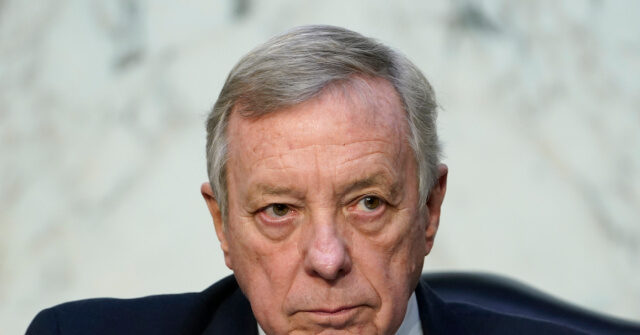In the aftermath of Donald Trump’s election as President, the potential appointment of Sen. Dick Durbin (D-IL) as the incoming ranking member of the Senate Judiciary Committee has raised concerns about the effectiveness of Trump’s America First agenda. Durbin, known for his staunch opposition to Trump, has hinted at employing a variety of tactics to impede Trump’s nominees, particularly in regard to crucial cabinet positions and judicial appointments. As a prominent figure in the Senate Democratic leadership, currently serving as the Majority Whip, Durbin’s influence on the Judiciary Committee may enable him to organize efforts to derail the nomination process. This task is critical, as the functionality of Trump’s administration and key policy initiatives may hinge on the swift confirmation of his appointees.
Despite the Senate’s elimination of the 60-vote threshold required to overcome a filibuster for Supreme Court nominees, Senate Democrats, with Durbin leading the charge, have several strategies at their disposal to stall the nomination process. They may deploy methods such as blocking unanimous consent requests, questioning quorums, and extending debates on the Senate floor. These tactics can significantly consume the time and political capital of Senate Republicans, thereby complicating their efforts to ensure timely confirmations of Trump’s nominees. The interplay of Durbin’s potential leadership and the strategies available to the Democrats signifies a challenging landscape for the incoming Republican administration, which may face substantial obstacles from a disciplined and focused opposition.
Durbin has publicly emphasized the importance of congressional oversight, particularly following a Supreme Court ruling that granted the sitting president criminal immunity for actions carried out in office. He posited during a Senate Judiciary Committee hearing that it would fall to Congress and the American people to ensure accountability for Trump. In what can be viewed as a rallying cry against perceived abuses of power, Durbin’s remarks highlighted a commitment to aggressively monitor the actions of the executive branch. His assertion draws stark attention to the broader implications of executive accountability, particularly in the context of Trump’s tenure and the accountability mechanisms—or lack thereof—available to legislative bodies.
The political narrative surrounding Trump also intertwines with the actions of President Biden regarding his son, Hunter Biden, which raised questions about fairness and consistency in political accountability. Durbin’s critique of Trump, framed around claims of constitutional assault and attempts to manipulate the Justice Department, serves to underlying his commitment to uphold the rule of law. These statements set the stage for a renewed phase of partisan conflict in which Durbin positions himself as a defender against what he perceives to be overreach by Trump. His robust rhetoric about safeguarding democracy and constitutional integrity resonates with segments of the electorate who harbor significant distrust of Trump’s governing principles.
Support from within the Democratic ranks further bolsters Durbin’s position against Trump’s nominees. Colleagues such as Sen. Peter Welch (D-VT) and Sen. Tammy Duckworth (D-IL) have publicly expressed their confidence in Durbin’s ability to mount an effective opposition. They view Durbin as integral to the strategy of obstructing Trump’s judicial nominations. Such backing underscores the collective Democratic interest in coalescing around a prominent leader capable of challenging the Republican administration’s appointments, thus enhancing his political standing within the party and aligning their efforts against what they perceive to be threats to judicial independence and impartial governance.
As the political landscape evolves, it remains pertinent to observe whether Durbin’s intentions translate into substantial actions and outcomes in the session ahead. The Democratic strategy, spearheaded by figures like Durbin, may hinge on leveraging Senate rules and public discourse to cultivate an atmosphere of resistance against Trump’s administration. With a coordinated effort from Senate Democrats, Americans are poised to witness whether Durbin and his allies can effectively disrupt the confirmation processes of Trump’s nominees, potentially reshaping the judicial and governance landscape for years to come. This looming political confrontation is set to be a focal point of the coming Senate sessions, as both parties prepare for a legislative tug-of-war over the future direction of American governance.

